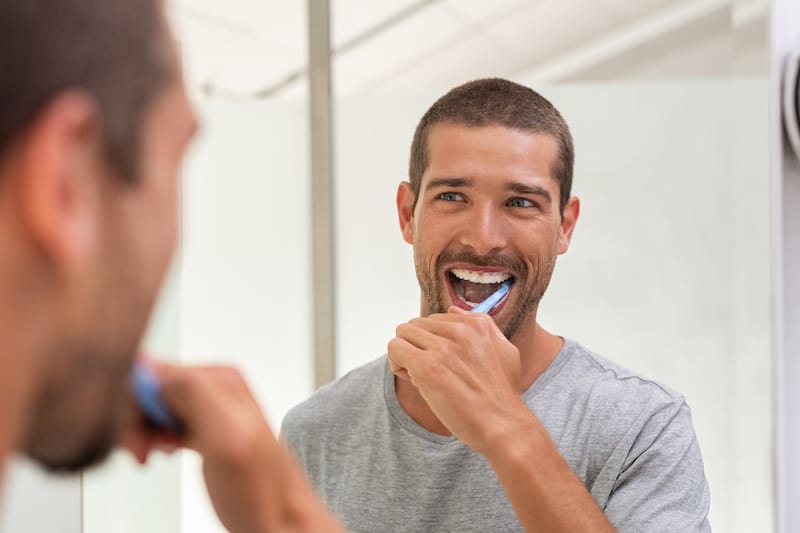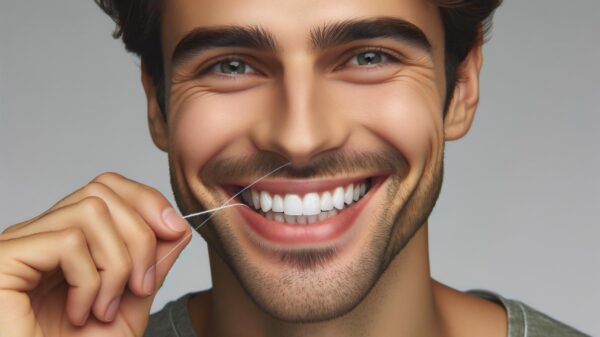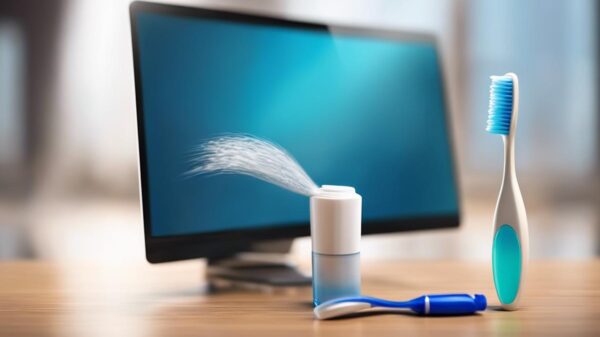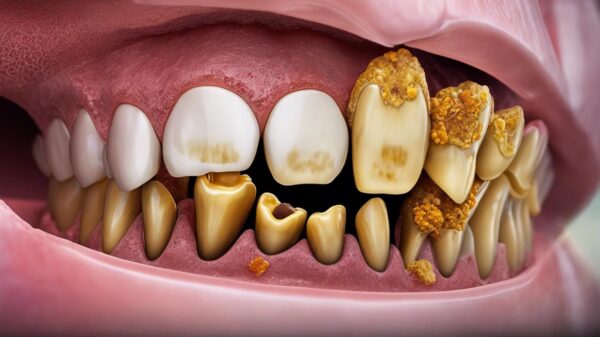How to Brush Your Teeth After Wisdom Teeth Removal
Wisdom tooth removal is perhaps one of the most dreaded dentistry procedures. There are many misconceptions and fears associated with this procedure. Because of this, individuals often avoid removing their wisdom teeth, even when they are the cause of great pain or even infection. However, wisdom teeth removal, and the associated recovery time, is not something that should cause anxiety. By learning what to expect regarding the recovery process, you can alleviate many of your fears about your upcoming procedure.
So, when can you brush your teeth after wisdom teeth removal? Although your dentist will provide you with instructions specific to your recovery, the dentists at Children’s Dental Health Center recommend that you wait 24 hours following the procedure before you brush your teeth. However, it is important to maintain your oral health by rising with a saltwater solution even before you brush your teeth.
Because you will be able to eat and drink shortly after your wisdom tooth removal, it is important to maintain proper oral hygiene. Failing to do so could result in an infection to the wound or dry socket.
In this post, we will discuss how (and when) to brush your teeth following your wisdom tooth removal procedure. We will also share some valuable information regarding other habits and activities that you should avoid to ensure a speedy recovery.
Brushing Your Teeth After Wisdom Teeth Removal
Brushing your teeth is likely a large part of your daily oral hygiene routine – and if it’s not already, it should be! For this reason, many people have questions about when and how to brush their teeth following their wisdom tooth removal procedure.
Before we get into the specifics of brushing your teeth after having this common dental procedure, it is important to note that your dentist will provide you with specific instructions regarding your unique situation. If you have questions or concerns about your wisdom tooth recovery process, do not hesitate to reach out to your local dentist!
Proper Oral Hygiene After Wisdom Teeth Removal
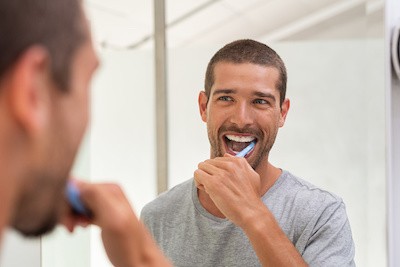 Immediately following your wisdom tooth removal procedure, oral hygiene will likely be the last thing on your mind. Most patients experience some degree of pain and swelling for several days following their procedure. This discomfort is usually well-controlled by pain medication that is prescribed by your dentist.
Immediately following your wisdom tooth removal procedure, oral hygiene will likely be the last thing on your mind. Most patients experience some degree of pain and swelling for several days following their procedure. This discomfort is usually well-controlled by pain medication that is prescribed by your dentist.
Following your procedure, it is important that you carefully follow any oral hygiene instructions provided by your dentist. For the first 24 hours following your wisdom tooth removal, you will rinse your mouth with a saltwater solution every few hours. In addition to freshening your mouth, this solution will clean the wound site, minimizing the potential for infection.
Once 24 hours have passed, you will likely be cleared to resume your normal oral hygiene habits with some caution. While it may feel uncomfortable or clumsy at first, you must continue to brush twice a day and floss.
However, you will need to avoid the wound site until it has had time to fully heal. Brushing too close to your stitches can result in further injury or even infection. Brushing and flossing your teeth is the best way to ensure a quick recovery free from unnecessary complications.
Average Recovery Timeline Following Wisdom Teeth Removal
The most pressing question most individuals have before their wisdom teeth removal procedure is what they can expect regarding recovery time. This is an important piece of the planning process for most patients as they must plan to take time off work or school for a few days.
The initial pain and swelling caused by the procedure recede within roughly four days for most patients. After this time, most individuals are ready to return to their daily activities. However, this does not mean that you have fully recovered! In fact, it will take between 6 to 8 weeks for your mouth to fully recover following your wisdom tooth removal.
The First 24 Hours
While wisdom tooth removal is among the most common dental procedures, it is more complex than treating a simple cavity. For this reason, it is important to prepare properly by ensuring that you can remain home and rest for at least two days following your procedure.
If you have a busy work or school schedule, it may be wise to schedule your procedure for a Friday morning to eliminate the time you will need to request off from your responsibilities. You will be unable to drive following your procedure so you will need to arrange for transportation to and from your appointment.
For the first 24 hours following your wisdom tooth removal procedure, you will need to rest as much as possible. It is also important to take your prescribed pain medication on schedule to ensure that your level of pain remains tolerable. During this initial recovery period, your diet will be rather restricted.
Although your dentist may recommend that you refrain from eating or drinking for the first few hours, you will be able to consume soft foods that require little or no chewing. Many individuals appreciate smoothies or milkshakes as the coolness relieves some of the discomforts they may experience.
The Initial Recovery Period
After the first 24 hours, you may start to feel more like yourself. However, you must continue to rest and take your pain medication as needed. While you may be craving your favorite crunchy snack, you must avoid eating foods that will aggravate your wounds. You can find a list of foods to avoid after wisdom tooth removal here.
For the next two or three days, be aware of how your body is responding to an increase in activity. Don’t push yourself too hard, allowing your body to heal. During this period, you will need to maintain a diet of soft foods that do not pose a threat to your healing wounds. Most individuals are ready to resume their daily routines about four days after their wisdom teeth are removed.
Achieving Full Recovery
While you will return to your daily routine after just a few days, it is important to remember that your mouth will not be fully healed for several weeks. Your dentist may request that you return for a follow-up appointment about a week after your procedure. Most dentists, however, do not schedule a follow-up appointment until roughly two months after your removal.
As you return to your dietary habits and normal oral hygiene routine, you must be careful to watch for any signs of infection or injury to the wound. If you notice any changes or suspect an infection, you must schedule an appointment with your dentist as soon as possible.
Things to Avoid After Wisdom Teeth Removal
As we have mentioned, there are certain foods you will need to avoid following your wisdom tooth removal procedure. Crunchy, hard, or sticky foods will only cause damage to your wounds. You must also avoid smoking during your initial recovery period as this may aggravate your stitches. You can learn more about smoking after wisdom tooth removal here.
Does Everyone Need Their Wisdom Teeth Removed?
It may seem as if everyone you know has had their wisdom teeth removed at some point in their lifetime. But, is this really the only option? What happens if you choose to decline a suggested wisdom tooth extraction?
Dentists estimate that roughly 80% of American adults have had their wisdom teeth removed. Your dentist may recommend that you have your wisdom teeth removed for a variety of reasons. Most commonly, wisdom teeth pose a threat of possible infection of the gums or surrounding tissue. This is due to the fact that it is nearly impossible to correctly clean these hard-to-reach teeth. Additionally, many individuals experience symptoms from impacted wisdom teeth. You can learn more about brushing your wisdom teeth here.
However, this is not the only reason individuals choose to remove their wisdom teeth! Because most wisdom teeth come in after the average patient receives orthodontic care, they can often create misalignments. For some people, a wisdom tooth extraction is the best way to maintain the straight smile they worked so hard to achieve.
Finally, some people experience great pain when their wisdom teeth come in due to overcrowding of the jaw. For this group of patients, removing the wisdom teeth is the only way to achieve the relief they so desperately crave.
At the end of the day, regardless of the reasoning behind removing your wisdom teeth, it is a relatively straightforward procedure. While many individuals dread the process, it is well worth the recovery time that follows.
Caring For Your Smile After Wisdom Tooth Removal
After you recover from your wisdom tooth removal, you should resume your normal oral healthcare routine. Brushing twice daily, flossing once a day, and bi-annual dental exams and cleanings will keep your smile in top-notch condition! Whether you have been putting off your wisdom tooth removal for days or years, consider this your sign – this will be one procedure you certainly won’t regret! Although the initial recovery period may seem daunting, you will be ready to return to your daily routine in no time.
Thank you for reading Modern Dental Hygiene! You can find more oral hygiene tips here.



